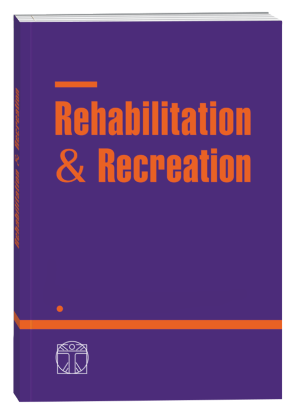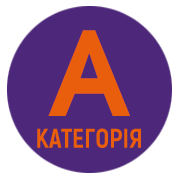MONITORING THE INTEGRATION OF CHILDREN IN NEED OF PALLIATIVE ASSISTANCE IN THE EDUCATIONAL SPACE
DOI:
https://doi.org/10.32782/2522-1795.2023.16.8Keywords:
legislative framework, right to education, inclusion, physiotherapeutic support.Abstract
Every child in Ukraine has the right to education. This is confirmed by a number of legislative and legal frameworks of the state. The purpose of the study is to analyze the dynamics of the formation of a network of educational institutions for the provision of educational services to children in need of palliative care, using the example of the city of Rivne. The research methods were analysis and generalization of data from scientific and methodological and special literature, generalization of statistical data of educational institutions of the city of Rivne; studying the results of a survey of parents. Research results. According to the results of the study, starting from 2015 to 2023, the number of educational institutions that implement the right of a child with special educational needs to receive education has increased from 10 to 28 schools; the number of students increased from 25 to 146 people. Such institutions are inclusive classes, educational rehabilitation and inclusive resource centers, a home form of pedagogical patronage. 47 children in need of palliative care participate in the study. According to various forms of education, 26 (55 %) children received educational services, 21 (45 %) children did not study. The reasons that led to obstacles to obtaining an education were revealed: the clinical picture of the disease, architectural barriers, the educational program, the impossibility of pedagogical patronage, the understaffing of the team of specialists, “There is no point in learning”, “The child gets tired quickly”, fear for the child in the team. The systematization of the results of the parents’ questionnaire contributed to the identification of the priorities of their child’s development: the possibility of providing the child with educational services in an acceptable form, the possibility of the child visiting extra-curricular educational institutions, the possibility of visiting public places with the child, the child’s communication only with family members, because it is calmer, the child’s communication with other children, in the team, the child’s communication is only with the parents, because only they understand it, listen to the seminar “Forms of educational services for children with special educational needs”, listen to the seminar “Extracurricular activities – atr therapy, dance and movement therapy”. During the study, the main group was formed – 24 (51 %), 23 (49 %) children are in the control group. The proposed physiotherapeutic support for the children of the main group was aimed at harmonizing the organization of the educational process, which included: modification of the household and educational space; formation of an alternative communication system; learning self-care skills; development of natural abilities; integration into society. The proposed physiotherapeutic support for the children of the main group was aimed at harmonizing the organization of the educational process, which included: modification of the household and educational space; formation of an alternative communication system; learning self-care skills; development of natural abilities; integration into society. At the end of the study, 8 (17 %) children in the main group studied at home, and 3 (6 %) children in the control group. Conclusions. Thus, the implementation of physiotherapy supervision of children helps to implement the educational process of students with special educational needs.
References
Тарасюк В., Кучанська Г. Паліативно- хосписна допомога. Київ : Медицина, 2021. 332 с.
Нагорна О.Б. Особливості корекційно- виховної роботи з дітьми з особливими освітніми потребами : навчально-методичний посібник / НАПН України, ДВНЗ «Ун-т менеджменту освіти». Київ, 2013. 140 с. URL: http://ep3.nuwm.edu.ua/id/eprint/4057
Порошенко М.А. Організаційно-методичні засади діяльності інклюзивно-ресурсних центрів : навчально-методичний посібник / Всеукраїнська благодійна організація «Благодійний фонд Порошенка». Київ, 2018. 252 с. URL: https://ispukr.org.ua/?p=4478
Освіта осіб з особливими потребами: шляхи розбудови : збірник наукових праць / за ред. В.В. Засенка. Київ : ТОВ «Наша друкарня», 2019. № 15. 364 с. URL: https://lib.iitta.gov.ua/719568/1/%D0%97 %D0%B1_15_2019.pdf
Корнілова О.В. Медична допомога як вид соціального забезпечення. Кваліфікаційна наукова праця на правах рукопису / Національний університет «Одеська юридична академія». Одеса, 2021. URL: https://hdl.handle.net/ 11300/14843
Малишевська І. Основні чинники розвитку інклюзивної освіти в Україні. Психолого-педагогічні проблеми сучасної школи. 2021. № 1(5). С. 45–51. doi: 10.31499/ 2706-6258.1(5).2021.234766
Закон України «Про освіту». URL: https://urst.com.ua/act/pro_osvitu
Положення про інклюзивно- ресурсний центр : затверджене постановою Кабінету Міністрів України № 545. URL: https://zakon.rada.gov.ua/laws/show/ 545-2017-%D0%BF#Text
Постановка «Про затвердження Порядку організації інклюзивного навчання у закладах загальної середньої освіти». URL: https://zakon.rada.gov.ua/laws/show/ 957-2021-%D0%BF#Text
Downloads
Published
How to Cite
Issue
Section
License

This work is licensed under a Creative Commons Attribution-NonCommercial-NoDerivatives 4.0 International License.












